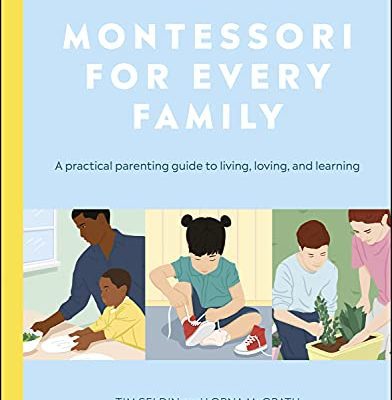From Daily Activities to Creating a Conducive Environment at Home
by Montessori Staff Writers
As a parent, one of the most common questions you might ask your child after school is, “So, what did you do at school today?” Often, you might be met with replies like, “Nothing” or vague responses about daily activities, such as playing with clay or spooning beans. Rest assured, your child is engaged in various developmental activities at school, even if they don’t explicitly share them.
Young children, in particular, might have difficulty articulating their day-to-day school activities. The wealth of activities and the unique names of Montessori materials, such as the Trinomial Cube or the Addition Strip Board, can all be overwhelming to remember and express.
Moreover, the Montessori learning experience is predominantly hands-on, involving manipulative materials that promote critical thinking, creativity, and problem-solving. Thus, your child might not bring home many papers or projects depicting their work, but that doesn’t mean they’re not learning and progressing.
Engaging with Your Child’s Montessori Experience
• Ask specific questions: Instead of a generic inquiry, ask specific questions, such as: Did you do a counting lesson today? or Did you work with colors or build a tower?
• Visit the classroom: Occasionally, you can take your child into the classroom at dismissal so they can show you their favorite activities. Be mindful, however, of the teachers’ end-of-day responsibilities.
• Classroom observation: Set up a time to observe your child in class to get a firsthand understanding of their learning environment.
• Teacher interaction: Connect with your child’s teacher for insights into your child’s progress. You can have informal discussions or schedule formal parent-teacher conferences.
• Montessori literature: Reading a book about Montessori education (or Maria Montessori) can help you understand the teaching methodology and align your expectations.
• Participate in school events: Attend school meetings and workshops to stay connected with the school community.
• Play school at home: Children often mirror their school activities during play, giving you a glimpse into their learning experiences.
• Patience is key: With time, your child’s growth and learning will become more evident.
Supporting Your Child’s Montessori Experience at Home
Witnessing the independence and responsibility of children in a Montessori environment might prompt you to wonder, “How can I foster these qualities at home?” While home should be a more relaxed space, you can apply certain Montessori principles to create an enabling environment for your child at home. Here are some suggestions:
• Encourage independence: Provide stable stools to help your child reach items of personal use. Arrange clothes on low racks and organize everyday dishes and nutritious food items within their reach.
• Household chores: Involve your child in tasks like laundry, unloading the dishwasher, and cleaning up their messes. Even simple tasks help foster a sense of responsibility.
• Organized play: Arrange toys, art supplies, and books on reachable shelves, and rotate these items to maintain their interest. Organize like items together in an attractive manner.
• Personal space: Provide a space for your child’s activities in every room. Create a self-quieting corner for them to retreat to when they need to calm down.
• Room redecoration: Older children can be invited to help redecorate their rooms, fostering a sense of ownership and decision-making.
• Monitor screen time: Limit TV and computer time, promoting more engaging and creative activities.
• Reading: Irrespective of their age, reading to your child is an enriching experience.
• Emotional communication: Talk about feelings with your child, promoting emotional intelligence.
• Use natural consequences: Rather than imposing punishment, allow natural consequences to teach your child about the effects of their actions on themselves and others.
Creating an environment that mirrors the Montessori principles at home can reinforce your child’s learning and growth. This supportive atmosphere, coupled with understanding and patience, will ensure your child cherishes their Montessori journey while developing essential life skills.






